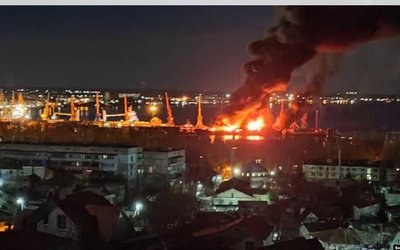
How do you see the functions of local development in the context of the recent assessments conducted by MIREST-Nepal's 'Rapid Governance Assessment report?
Our assessment report has shown very bleak scenarios of the state of local bodies at the moment. What we have found is that an overwhelming number of our respondents stressed the need to hold the elections for local bodies. It is very unfortunate that the elections of local bodies have not been held in the last 16 years.
How do you view the present state?
Nepal’s democracy is faced with such a dilemma that 68.38% of the total registered voters (above the age of 18) have not cast a vote even once in their lifetime and a huge group under the age of 33 years today have not even participated once in the election of local bodies and experienced local democratic processes and practices. If the present situation continues for another ten years, the number of people who participate in the local elections in their life time will come down to zero. Due to lack of elections people are deprived of right to participate in the activities of local development. This is a big vacuum in the political process. If one can hold the elections, it can protect the civic rights of the people and help to bring people's participation in decision making process. If we hold the elections, we can quantum leap in development process.
How do you see the assessment results?
Even though the RGA done by MIREST Nepal was challenging, from this study, it was an attempt to find the answers on the aspects about the situation of local governance, its transparency, its service delivery, accountability and people’s participation.
How many areas does your report cover?
RGA done by MIREST Nepal has shown the situation of total 75 DDCs, 58 Municipalities, 3915 VDC and 35823 ward citizen forums. MIREST has recently published a guide book on Ward Citizens Forum. Without local level elections, the maladies in the local level have deteriorated and the need of structural adjustment is of paramount importance. MIREST Nepal has conducted Rapid Governance Assessment (RGA) in 7 pilot districts: Sankhuwasabha, Sindhuli, Sunsari, Mustang, Dang, Humla and Kanchanpur; 3 municipalities: Khandbari, Itahari and Ghorahi and 3 VDCs in each of the 7 districts.
As there have been no elected representatives for over a decade, what do the people want?
Local interim election is the demand of the people for strengthening democratic and Local Self-governance Act, 2055. Due to an increase in the influence of the users committee, the status of the political parties has been deteriorating in the local level and there is a lack of accountability.
How do you see the service delivery?
The service delivery is deteriorating fast too. Local bodies like District Development Committees and Village Development Committees (VDCs) are defunct. There is virtually no work in the part of service delivery. It is in a very critical situation. The citizen participation is very low in the process of planning and good governance.
What is the modality of RGA?
Under Rapid Governance Assessment (RGA), separate group discussions were held with service providers & service receivers, primary field data were collected from DDCs, municipalities & VDCs and opinions of 1,537 people, including employees of DDCs, municipalities, VDCs and devolved sectors (service providers) and general public (service receivers) were collected through questionnaire. RGA was conducted on the basis of 5 parameters that deeply affect local governance. The assigned parameters were; 1. Implementation of Legal and Policy framework, 2. Voices of people and accountability, 3. Transparency, 4. Planning process and Citizens participation and 5. Service delivery.
What are the major findings?
Elections in the local level have become the most imperative in consolidating good governance, according to both service receivers and service providers. Increase in public hearings by the local bodies are of utmost importance in order to improve the status of local governance, particularly enhancing accountability and strengthening service delivery, according to service receivers. Public hearings at local bodies, especially by external institutions, has been found as a key to the introduction of effective and responsive governance system, importantly on planning process, resource utilization, service delivery, transparency and accountability mechanisms of local bodies. The process of Rapid Governance Assessment (RGA) conducted by MIREST Nepal was a new and virgin area of engagement in local governance in Nepal. Although, it was found to be useful tool for assessing the status of local governance, the RGA was more complex than anticipated. MIREST Nepal’s shift from the project from the constitution making process to strengthening the local governance process requires a few changes in its level of expertise, both on programmatic and management aspects. To monitor and evaluate the results of this project, some internal capacity building mechanism is required. Also, for deepening the understanding and knowledge about the local governance process amongst policy-makers, citizens and media, the successful practices and show-cases of countries, where local governance programs were successfully implemented, need to be brought-in for better future intervention.
- MELAMCHI WATER SUPPLY: No Interruption During Monsoon
- Jun 25, 2025
- KOREAN RETURNEES: Successful Integration
- Jun 25, 2025
- UPPER TRISHULI-1: Engaging With Local
- Jun 25, 2025
- IME GROUP: Twenty Five Years Of Journey
- Jun 24, 2025
- NEPAL’S AIR POLLUTION: A Growing Health Concern
- Jun 24, 2025















